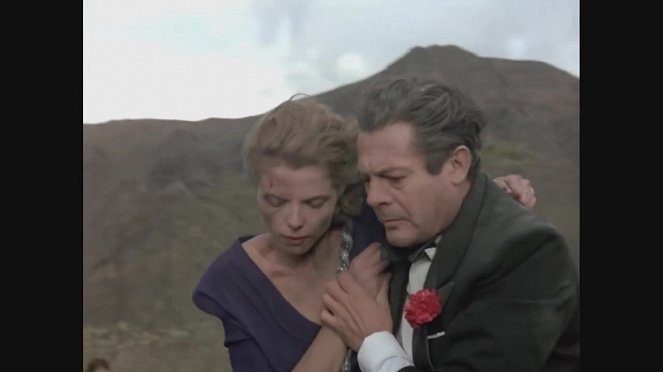Réalisation:
Liliana CavaniPhotographie:
Armando NannuzziMusique:
Lalo SchifrinActeurs·trices:
Marcello Mastroianni, Ken Marshall, Carlo Giuffrè, Jeanne Valérie, Jacques Sernas, Claudia Cardinale, Burt Lancaster, Tomas Arana (plus)Résumés(1)
Librement adapté d'un roman de Curzio Malaparte, le film se situe en 1943. Naples vient d'être libéré par les troupes américaines et dans cette époque troublée, vainqueurs et vaincus s'affrontent. Les femmes se prostituent, les mères bradent leurs enfants, les prisonniers allemands se vendent à prix d'or. Cette vaste fresque fait revivre dans toute sa cruelle vérité, certains événements tragiques de la dernière guerre et témoigne de la rencontre de deux cultures différentes : l'une anglo-saxonne, l'autre latine. (Gaumont)
(plus)Critiques (1)
If one side of war is represented by the front line with whizzing bullets and artillery fire, then the film actually shows us only the other side. In the first shots, American infantry cautiously advances into the heart of a city, but we are spared street fighting, and the war, as portrayed by American commanders who witness the opportunism and remarkable pragmatism of the local elite, takes on an almost operatic dimension. However, step by step, it becomes apparent that even a war without bombings and bloody massacres exacts its toll. From the highest toll in the case of a minefield to forced child prostitution - it is indeed better to sell one's child's body than to let them die of hunger. Cavani manages to show the absurdity of wartime conditions in a sometimes outright comical manner, reminding me in several moments (such as the theft of the tank and trading with well-fed German prisoners of war) of the novel "How I Won the War." Captain Malaparte is an informed narrator of the story and he has the ideal position from the viewer's perspective. He can interact with all layers of Italian society, from the upper ten thousand to the lost existences on the outskirts of the city. For Mastroianni, the role of an Italian officer with frontline experience was an interesting deviation from the template of intellectual and melancholic characters in Bolognini's films. Overall impression: 90%.
()

